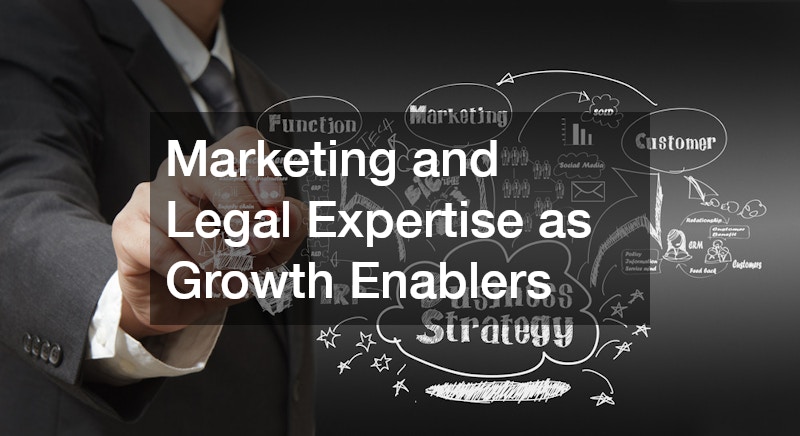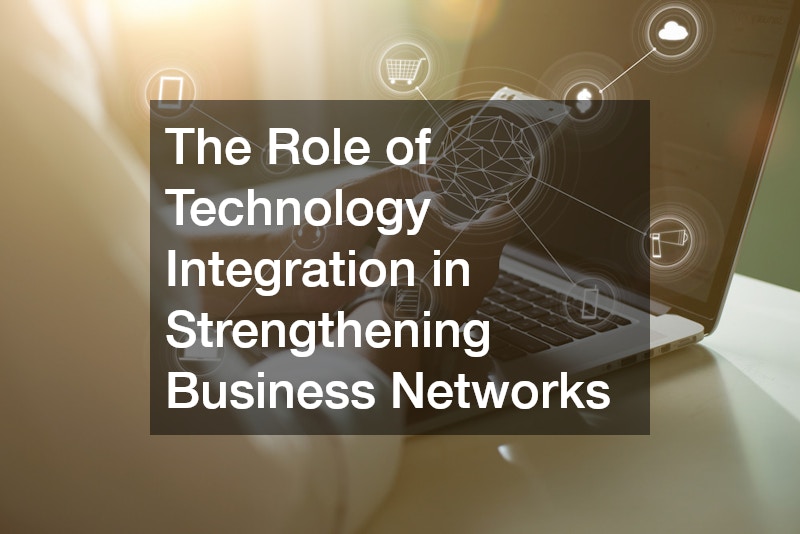In today’s interconnected economy, businesses no longer grow in isolation. Instead, they thrive in a connected ecosystem where collaboration, specialization, and innovation intersect to create long-term success. From manufacturing giants to healthcare providers and professional service firms, every organization relies on a network of experts and technologies that streamline operations, safeguard data, and strengthen financial health.
This connected business environment is a complex yet highly efficient system—where each player contributes to the collective progress of the market. Financial consultants guide strategic investments, logistics partners ensure efficient delivery, cybersecurity experts protect sensitive data, and marketing agencies help brands communicate effectively. The result is a networked ecosystem where companies can operate smarter, faster, and more securely.
This article explores how these specialized services—ranging from financial management and logistics to healthcare, legal, and marketing—contribute to business growth. It also examines how integrating them enables companies to build resilience and sustainability in an increasingly competitive global landscape.
Understanding the Modern Business Ecosystem
The modern business ecosystem represents a network of interconnected organizations, partners, and technologies working together to deliver value. It’s not limited to a company’s internal departments—it includes suppliers, clients, consultants, and digital platforms that collectively drive growth and innovation.
In the past, businesses operated within isolated silos. Manufacturing, logistics, accounting, and marketing were seen as separate units with limited overlap. But in the digital era, this model no longer works. Companies are now leveraging collaboration as a core business strategy, recognizing that shared expertise can unlock greater efficiency and innovation.
The rise of digital platforms has also allowed small and medium enterprises to access services once reserved for large corporations. For example, outsourcing key functions—such as financial strategy, logistics, and data management—has become common practice for companies that want to remain agile without bearing heavy overhead costs.
Ultimately, a connected business ecosystem thrives on three main pillars:
-
Collaboration: Organizations work together across sectors to share insights and resources.
-
Specialization: Each participant focuses on what they do best, increasing overall efficiency.
-
Technology: Digital tools enable data integration, automation, and seamless communication.
This environment doesn’t just improve operations—it transforms the way businesses innovate, serve customers, and scale sustainably.
Financial Leadership Beyond Boundaries

Sound financial management is at the heart of every successful enterprise. However, not all businesses can afford or require a full-time chief financial officer. This is where a fractional CFO becomes invaluable. By providing high-level financial oversight on a part-time or project basis, fractional CFOs help companies make smarter financial decisions without the long-term commitment.
They analyze cash flow, oversee budgeting, and design financial strategies that align with a company’s long-term goals. For industrial scale companies, the expertise of a fractional CFO can optimize capital allocation, improve cost control, and enhance profitability. These professionals also work closely with accounting firms to ensure accurate reporting, compliance, and audit readiness.
Beyond financial management, fractional CFOs often act as strategic advisors. They interpret complex data and turn it into actionable insights that guide expansion, mergers, or new investments. Their collaboration with other professionals—such as legal advisors, tax experts, and cybersecurity consultants—creates a holistic approach to financial governance.
In a connected business ecosystem, financial leadership is not confined within company walls; it extends outward, supported by a network of specialists who work collectively to strengthen financial resilience.
Streamlining Operations Through Logistics and Automation
Efficient operations are the foundation of scalability. Whether it’s a small e-commerce business or a multinational manufacturer, supply chain management plays a crucial role in maintaining profitability and customer satisfaction. This is where 3PL freight fulfillment providers come in—offering logistics and warehousing solutions that enable businesses to meet demand while reducing operational complexity.
Third-party logistics companies handle everything from inventory management to shipping, allowing businesses to focus on their core competencies. For instance:
-
Small businesses can use 3PL services to expand into new markets without investing in their own distribution infrastructure.
-
Large manufacturers can rely on 3PL partners to manage seasonal spikes or global logistics challenges.
Automation further enhances these capabilities. Material handling equipment—including automated conveyors, smart forklifts, and robotics—improves the speed, accuracy, and safety of warehouse operations. These technologies not only reduce labor costs but also minimize human error, ensuring products move efficiently through the supply chain.
When logistics providers integrate data analytics, automation, and robotics into their operations, they enable clients to achieve real-time visibility into shipments and inventory. This interconnected approach between technology and logistics partners exemplifies how modern ecosystems thrive—through collaboration that enhances efficiency at every level.
The Critical Role of Data Security and Compliance

In a digital-first world, data is one of the most valuable business assets—and also one of the most vulnerable. The increasing frequency of cyber threats and data breaches has made cybersecurity compliance services indispensable across industries.
Compliance isn’t just about meeting regulatory requirements; it’s about protecting trust. Whether you’re an accounting firm managing client records or a healthcare provider handling patient data, maintaining cybersecurity standards safeguards both reputation and operational continuity.
These services typically involve:
-
Regular risk assessments and vulnerability testing.
-
Implementation of encryption and access controls.
-
Monitoring systems to detect and prevent cyberattacks.
-
Training employees on data protection best practices.
For example, a logistics company that uses 3PL fulfillment services must also ensure its digital systems comply with data security regulations, especially when handling customer information. Similarly, accounting firms and industrial scale companies must maintain robust cybersecurity frameworks to protect sensitive financial data.
By integrating cybersecurity compliance into every layer of business operations, companies not only mitigate risk but also enhance the confidence of customers and partners. In a connected ecosystem, data security is the glue that holds digital collaboration together.
Technology Empowering Healthcare and Life Sciences
Few industries have benefited more from technological advancement than healthcare. Precision, accountability, and efficiency are critical—and technology has made them more achievable than ever before.
Take medical device inventory tracking software, for instance. This innovation has revolutionized how hospitals and medical manufacturers manage their supplies. By using barcode scanning, RFID tracking, and cloud-based systems, healthcare organizations can now monitor equipment usage, expiration dates, and compliance in real time. The result? Reduced waste, improved safety, and streamlined audits.
Equally transformative are physicians billing services, which simplify the complex process of insurance claims and revenue cycle management. These services ensure that healthcare providers are paid accurately and on time, while minimizing administrative burdens.
Together, these technological tools and outsourced services allow healthcare professionals to focus on patient outcomes rather than paperwork. They also align with broader industry needs for compliance, security, and transparency—principles shared across all modern business ecosystems.
When healthcare providers integrate billing, inventory, and data management systems, they create a self-sustaining ecosystem where every function supports operational efficiency and patient satisfaction.
Marketing and Legal Expertise as Growth Enablers

While financial and operational efficiency drive stability, marketing and legal expertise fuel visibility and longevity. Today’s competitive market requires businesses to not only function well but also communicate effectively and safeguard their assets.
An email marketing agency plays a crucial role in helping businesses nurture relationships with clients. These agencies design and execute campaigns that reach the right audiences with the right message at the right time. Through personalization, automation, and data analytics, email marketing has evolved into one of the most effective tools for brand engagement.
For B2B companies, especially those in industries like logistics, finance, or technology, email marketing offers measurable results—helping attract leads, boost conversions, and maintain customer loyalty. In the ecosystem model, these agencies often collaborate with data analysts and IT professionals to optimize campaign performance and compliance with privacy laws.
On the other end of the spectrum, estate planning lawyers serve as vital partners for business owners, executives, and investors. They help ensure that personal and business assets are protected, succession plans are clear, and legacies are secure. For family-owned or closely held companies, estate planning can determine the long-term continuity of the business itself.
Together, marketing and legal services contribute to sustainable growth—one by expanding market reach, the other by safeguarding what’s been built.
Building a Synergistic Ecosystem Across Sectors
At the heart of the modern economy lies interdependence. No single company operates in a vacuum; success depends on how effectively each business integrates with others. This interconnectivity defines a business development partner—an entity or expert that collaborates across industries to achieve mutual growth.
Consider how this synergy manifests across sectors:
-
A fractional CFO may work alongside accounting firms and cybersecurity providers to ensure both financial transparency and data security.
-
3PL freight fulfillment partners rely on material handling equipment manufacturers and IT providers to optimize logistics efficiency.
-
Medical device inventory tracking software vendors collaborate with hospitals and physicians billing services to create seamless healthcare ecosystems.
-
Email marketing agencies coordinate with CRM software developers and analytics experts to maximize client engagement.
-
Estate planning lawyers work closely with financial advisors to align legal protections with long-term wealth strategies.
This networked approach creates a multiplier effect: each participant adds value not only to their clients but to the broader system. The more cohesive the collaboration, the greater the competitive advantage.
In such an environment, innovation becomes collective—arising from shared insights, data integration, and mutual trust. Companies that embrace this mindset are better positioned to adapt to change, scale globally, and build resilient operations.
Future Outlook: What’s Next for Connected Business Ecosystems
As technology continues to evolve, the business ecosystem will become even more interconnected. Artificial intelligence, automation, and cloud platforms are already transforming how organizations collaborate and share information.
Here are key trends shaping the future of connected ecosystems:
-
AI-Powered Decision Making: Machine learning will help businesses analyze vast amounts of data to make faster, more informed decisions.
-
Hyper-Automation: From logistics to customer service, automation will streamline operations and reduce manual intervention.
-
Sustainability Integration: Businesses will increasingly collaborate with partners that prioritize environmental and social responsibility.
-
Data Interoperability: Cross-platform integrations will allow different industries—finance, healthcare, logistics—to share insights securely and efficiently.
-
Cyber Resilience: As cyber threats grow more sophisticated, cybersecurity compliance services will remain essential to protect interconnected systems.
The future business landscape will be defined not by competition alone but by collaboration. The most successful companies will be those that cultivate strong networks of trusted partners, blending human expertise with technological innovation.
The Role of Technology Integration in Strengthening Business Networks

As industries evolve, technology has become the unifying force that connects companies within a shared ecosystem. Digital platforms, automation, and cloud computing allow seamless communication between service providers, clients, and partners—eliminating traditional barriers to collaboration.
Businesses are now leveraging integrated systems to:
-
Share real-time data across logistics, finance, and marketing departments for faster decision-making.
-
Automate repetitive tasks such as accounting entries, shipping updates, and inventory checks.
-
Enhance visibility and transparency, ensuring all partners operate with synchronized information.
-
Facilitate remote collaboration, allowing teams and vendors to work across geographies effortlessly.
By embracing integration, businesses reduce redundancies, improve customer experience, and gain agility in adapting to market changes. Technology has become more than just an operational tool—it’s the backbone that sustains interconnectivity across industries.
Collaborative Innovation: Driving Competitive Advantage Through Shared Expertise
In a connected ecosystem, innovation no longer occurs in isolation. Companies are co-developing solutions with their partners, blending expertise from multiple sectors to address complex business challenges. Collaborative innovation not only speeds up development cycles but also ensures that products and services are more adaptable to diverse markets.
For instance:
-
Manufacturers work with logistics firms and tech developers to optimize supply chain performance.
-
Financial advisors collaborate with cybersecurity teams to build secure, compliant digital platforms.
-
Healthcare providers integrate billing, tracking, and data analytics tools to enhance patient outcomes.
By pooling resources and insights, organizations can experiment faster, reduce costs, and minimize risks. This collective approach strengthens resilience and ensures long-term competitive advantage in a rapidly changing global market.
Conclusion
The evolution of a connected business ecosystem signifies a fundamental shift in how organizations operate, collaborate, and grow. No longer limited by traditional boundaries, modern enterprises are leveraging specialized services to enhance efficiency, security, and profitability.
Financial experts like fractional CFOs provide strategic direction, while logistics partners deliver operational agility through 3PL fulfillment and advanced material handling equipment. Cybersecurity and compliance services protect digital infrastructures, and healthcare innovations such as medical device tracking and billing solutions improve patient outcomes. At the same time, marketing agencies and estate planning lawyers empower businesses to grow confidently and sustainably.
In this interconnected landscape, every service provider—whether a finance expert, technologist, or legal professional—acts as a vital thread in the fabric of the global economy. Together, they create a dynamic network where success is shared, innovation is continuous, and resilience is built into every process.
The future belongs to businesses that embrace connection—those that understand that growth isn’t achieved alone, but through the power of collaboration within a thriving, intelligent ecosystem.

